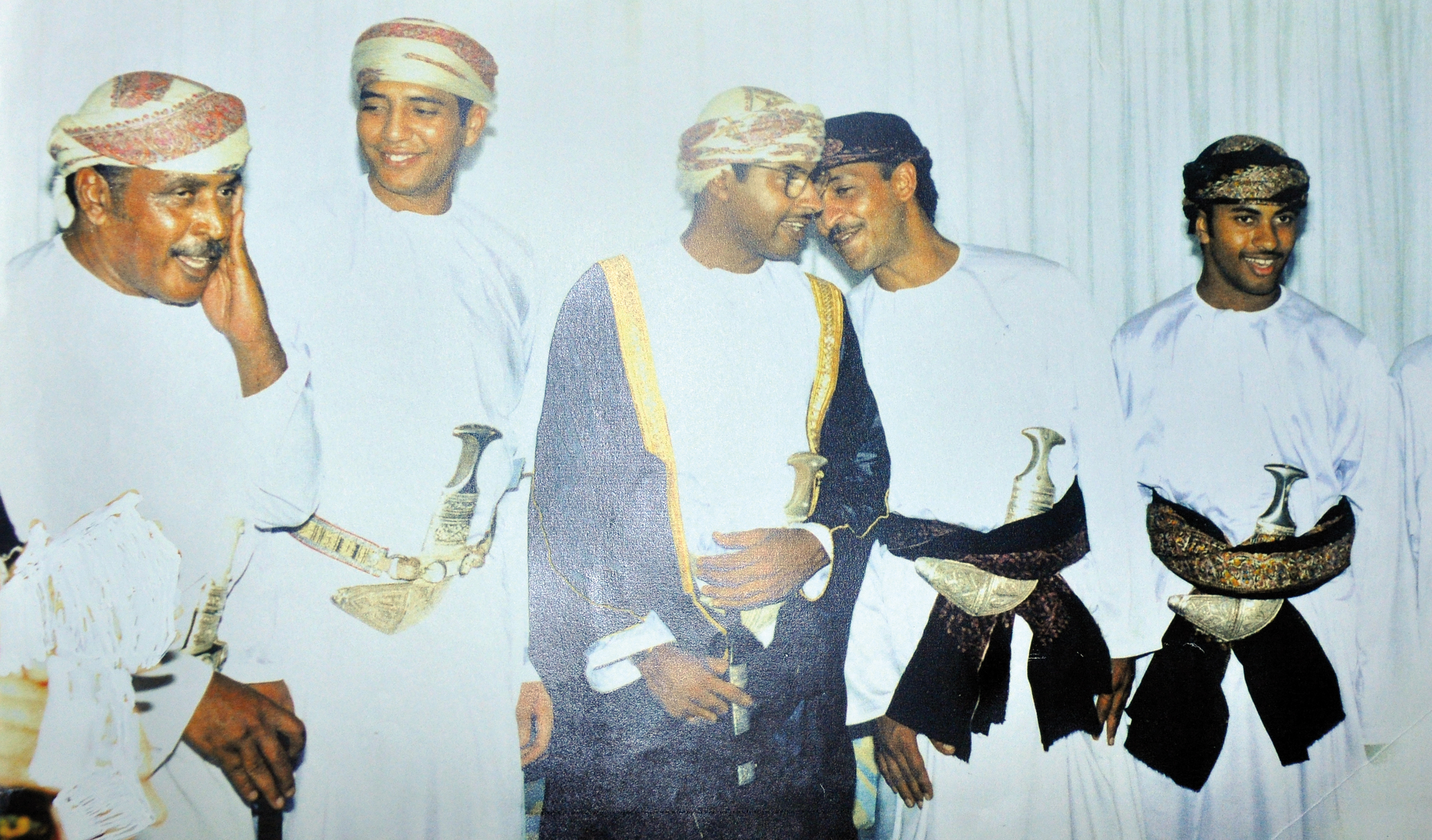
In the living room of a humble abode that has got pictures of grandchildren, parents and photographs from important ceremonies adorning the walls, sits author Ahmed Al Riyami, a 78-year-old eager man with books, newspaper clippings, photographs and various documents surrounding him. With sleek spectacles, a wide smile on his face and a file in his hand, he takes us on a journey through time.
**media[890971]**
Back in the 16th century, Oman was a prosperous maritime nation indulging in trading activities with many of its neighbours. However, during the same time Oman’s neighbour Zanzibar, was having a tough time trying to get the Portuguese invaders out of the country. The ever caring and generous Omanis offered to help the nation in overthrowing the Portuguese. After successfully defeating the invaders and getting them out of the country with Oman’s help, Zanzibaris requested Omanis to stay back.
The Omanis agreed and eventually the founder of the renowned Al Busaidi dynasty started ruling Zanzibar. Later, he decided to make it the capital of Oman. It all remained as one huge empire until the ruler died and his two sons split. While one decided to rule over Oman, the other took over Zanzibar.
**media[890972]**
“Zanzibar thrived very well and there was progress in trade, commerce and the climate was wonderful. Zanzibar was the leading country in clove and coconut plantation, so many Omanis started settling there. Until the 1964 invasion, people lived very well and prosperously.
“I think people were envious because Zanzibar was a gateway for many things. Vasco Da Gama used guides from Zanzibar for his expeditions. Religiously too, Islam penetrated into eastern central Africa through Zanzibar,” says Ahmed Al Riyami.
The unfortunate attack by mainlanders in 1964, which resulted in the death of tens of thousands and many more being imprisoned including Al Riyami, who was part of the revolutionary struggle, led to the downfall of the wonderful land of Zanzibar. Al Riyami wistfully says, “The good days are gone.”
**media[890974]**
Since Oman, at that point, didn’t have much to offer before His Majesty took over and completely changed the scene in the Sultanate, Zanzibaris migrated to other parts of the Middle East, including Dubai, Kuwait, Qatar, and some even moved to India and Pakistan. “I studied in Ras Al Khaimah, Kuwait, Dubai, while some went to India and Pakistan,” he says. During this time, Zanzibaris kept migrating from one country to another looking for jobs, opportunities and a place they could call home, until His Majesty Sultan Qaboos bin Said took over the Sultanate and almost immediately invited all the Zanzibari brethren back to Oman, their own country. “That’s why we call it a blessing,” says Al Riyami, recalling the day when His Majesty became the ruler of the land.
“There was a clarion call and I left my great job and came to Oman immediately to work for the first Omani-English company. After that, I joined BP and Oman Refinery. I had three children when I came from Zanzibar, another boy was born in Kuwait while two girls were born in Ras Al Khaimah, and my last son was born in Oman,” he says.
Al Riyami’s journey in Oman too has been rather exciting. After having become the general manager of the Port Sultan Qaboos even before the work was completed to working in financial institutions and finally finding a job that made him happy, the author has tasted different kinds of experiences in his long and eventful life.
**media[890980]**
After his retirement, Al Riyami realised that he couldn’t just sit at home and that’s when he decided to pen down his experiences from Zanzibar, Oman and his other interesting anecdotes. So far, he has published six books. However, when he looks back today, he believes that his most prized possession is his family that comprises his wife, who has been his partner in every sense for 60 years, his seven children, and 25 grandchildren who spread joy and laughter in his house and life.
After sharing his entire life story and knowledge, he asks if his English is “tolerable” and explains his question with a story behind it. “The Sultan, who was the founder of the Al Busaidi dynasty, sent his ship with an Omani captain to the United States. The President of the United States should have gone and met the captain of the ship as per protocol but unfortunately, the President had very urgent matters to attend to and so, he sent his secretary instead. So the secretary had to write a report for the President. It was a long report and eventually the conclusion read, ‘Captain Al Kaabi of the Sultana from Oman, apart from being good looking, spoke tolerable English’.”